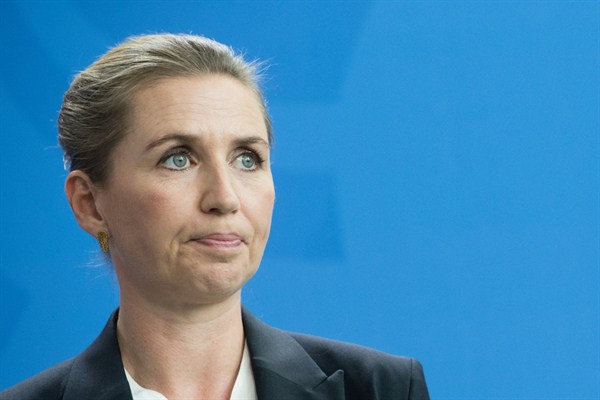Denmark became the third Nordic country to form a center-left government this year after the Social Democratic Party won elections in June. The Social Democrats’ leader, Mette Fredericksen, became the country’s youngest prime minister at the age of 41, forming a one-party minority government with the support of three other left-leaning parties. Social democratic parties have also prevailed in elections in Sweden and Finland this year, seemingly bucking a continent-wide populist trend. But in Denmark, the Social Democratic Party won largely due to its sharp rightward turn on immigration, which allowed it to siphon off votes from the right-wing Danish People’s Party. In an email interview with WPR, Karina Kosiara-Pedersen, an associate professor of political science at the University of Copenhagen, discusses the factors that propelled the Social Democrats to victory and the challenges of implementing their ambitious agenda.
World Politics Review: What allowed the Social Democratic Party to prevail in the election, and why did it opt to form a minority government?
Karina Kosiara-Pedersen: While the Social Democratic Party won the elections in June, it netted a gain of only one seat in parliament compared to 2015. While it gained votes from the Danish People’s Party, known by its Danish abbreviation DF, it lost votes mainly to like-minded parties like the Socialist People’s Party and the Social Liberal Party, both of which are now supporting the Social Democrats’ minority government. Opinion polls and preliminary analyses of the election results indicate that the main explanations for the Social Democrats’ shifting base of support can be found in its turn toward right-leaning policies on immigration and its new, progressive proposals on social welfare.

